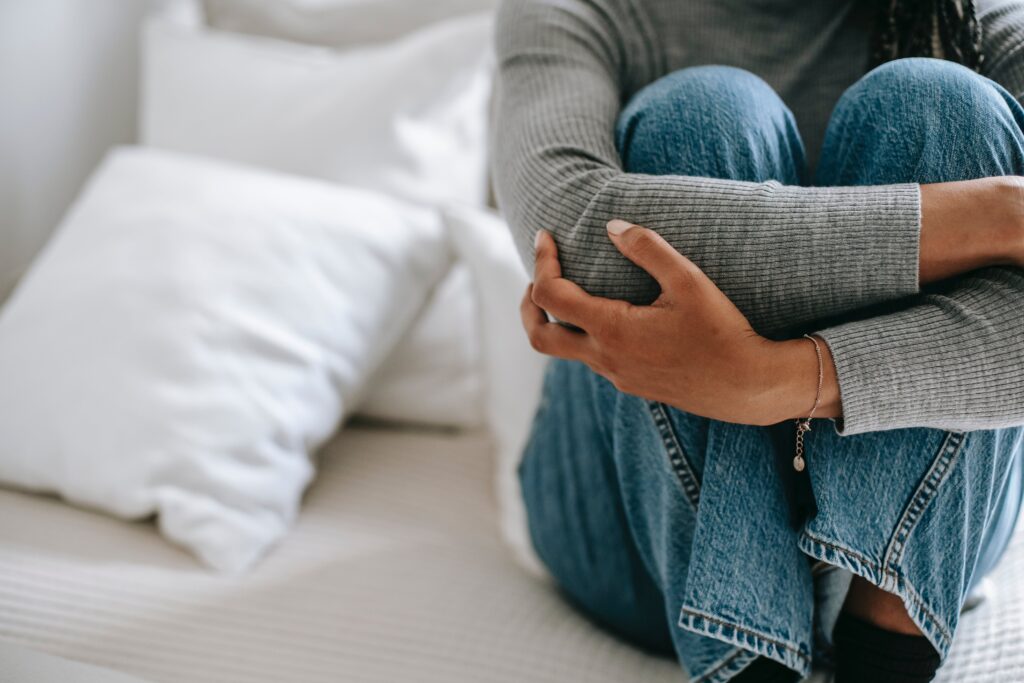The relationship between alcohol and insomnia is intricate. Insomnia, a sleep disorder, disrupts the ability to attain restful sleep. This may manifest as an inability to initiate sleep, difficulty reaching a deep sleep, or frequent awakenings during the night. Regardless of the specific manifestation, the result is waking up without feeling adequately rested. While this may not appear immediately problematic on a day-to-day basis, its long-term effects can be detrimental to mood, energy levels, physical and mental health, work performance, and overall quality of life.
For many people, insomnia is a treatable condition, and if identified early, its impact can be mitigated before causing lasting harm. Unfortunately, some people resort to self-medication using the sedative effects of alcohol to address their insomnia. Regrettably, this approach can significantly complicate the underlying sleep issue. Read on to learn more about drinking alcohol and insomnia. You can also discover how to connect with evidence-based treatment for insomnia and alcoholism in California.
Insomnia and Alcohol
The relationship between insomnia and alcohol is multifaceted. While some people may turn to alcohol as a means to cope with insomnia, there are many pitfalls associated with this approach. It is inadvisable and potentially dangerous.
Temporary relief, long-term complications
Alcohol’s sedative effects may provide temporary relief by inducing drowsiness and promoting sleep initiation. This relief is often short-lived, though, and can trigger more significant sleep disruptions later in the night.
Altered sleep architecture
Despite its initial calming effects, alcohol can alter the normal architecture of sleep. It may suppress REM (rapid eye movement) sleep, the stage crucial for cognitive function and emotional well-being, contributing to a less restorative sleep experience.
Increased wakefulness
As the body metabolizes alcohol, its stimulant effects may emerge, causing awakenings during the later part of the night. This can result in fragmented sleep and degraded sleep quality.
Dependency and tolerance
Regular use of alcohol as a sleep aid can lead to tolerance, meaning that higher amounts are required to achieve the same sedative effect. This escalation raises the risk of alcohol dependency and addiction in the form of alcohol use disorder (alcoholism).
Worsening insomnia
Over time, reliance on alcohol for sleep may inflame insomnia rather than alleviating it. The underlying sleep issues may persist or intensify, prompting a cycle of dependence and disrupted sleep patterns.
Negative health consequences
Beyond insomnia and alcohol use, excessive alcohol consumption is linked to health risks that may include cardiovascular complications, liver disease, and co-occurring mental health disorders.
Seeking professional guidance
Anyone who is experiencing persistent insomnia should consult healthcare professionals rather than self-medicating with alcohol. Physicians can explore underlying causes, recommend appropriate interventions, and promote healthier sleep hygiene.

Insomnia and Alcohol Abuse
While some people may first turn to alcohol as a coping mechanism for insomnia, prolonged reliance on this approach is associated with myriad complications, including alcohol abuse. Heavily drinking alcohol and insomnia involves distinct challenges that may include:
- Tolerance and increased consumption: The body’s tolerance to the sedative effects of alcohol can lead to a need for higher quantities to achieve the same calming effect. This escalation of consumption poses risks to physical health and mental well-being.
- Escalating dependency: Continued use of alcohol to address insomnia may contribute to the development of alcohol dependence. Individuals may find themselves increasingly relying on alcohol to facilitate sleep, and experiencing withdrawal symptoms in the absence of alcohol.
- Impact on mental health: Chronic alcohol abuse can exacerbate mental health issues, potentially worsening insomnia-related anxiety or depression. The negative impact on mood and cognitive function can further complicate the overall sleep picture.
- Sleep medication interactions: Individuals combining alcohol with prescription or over-the-counter sleep medications may experience heightened sedative effects and increased impairment. This raises the risk of accidents, falls, and other adverse outcomes.
- Interrupted sleep patterns: While alcohol may induce drowsiness, it often results in disrupted sleep patterns later in the night. Frequent awakenings, reduced REM sleep, and overall fragmented sleep can contribute to a non-restorative sleep experience.
- Health consequences: Chronic alcohol abuse is associated with many health issues, including liver disease, cardiovascular complications, and an increased risk of mental health disorders. These health consequences extend beyond the immediate impact on sleep.
- Professional intervention: Healthcare providers can assess the person’s overall health, address the root causes of insomnia, and formulate a comprehensive plan for both sleep improvement and alcohol management.
Understanding the nuanced relationship between insomnia and alcohol abuse is beneficial for anyone seeking sustainable solutions for their sleep difficulties while mitigating the risks associated with substance misuse.
Alcohol Withdrawal and Insomnia
Insomnia and alcoholic withdrawal often go hand-in-hand. When someone with a history of alcohol abuse decides to moderate or discontinue use, alcohol withdrawal symptoms like insomnia commonly manifest during this period. Abrupt cessation can disrupt the balance of neurotransmitters in the brain, leading to sleep disturbances. Individuals may struggle with falling asleep, staying asleep, or experiencing restorative sleep.
Physical symptoms such as night sweats and restlessness are commonplace, and during alcohol detox, insomnia often becoming further inflamed.
People undergoing alcohol withdrawal often experience heightened anxiety and irritability. These emotional factors can negatively impact sleep quality, making it challenging to achieve a calm and relaxed state conducive to restful sleep.
The central nervous system undergoes adaptations during chronic alcohol use. Sudden discontinuation triggers a state of hyperarousal, making it difficult for people to transition into a relaxed state necessary for sleep initiation.
Insomnia during alcohol withdrawal can persist for varying durations. Some people may experience short-term sleep difficulties, while others may contend with prolonged insomnia as the body adjusts to the ongoing absence of alcohol.
The severity and duration of alcohol withdrawal symptoms, including insomnia, can vary significantly from person to person. Factors like the intensity and duration of alcohol use, overall health, and individual differences in neurobiology contribute to this variability.
Due to the potential complexities of alcohol withdrawal, especially in cases of long-term and heavy alcohol consumption, seeking medical supervision is almost always advisable. Healthcare professionals can provide support, monitor symptoms, and, if necessary, recommend interventions to address insomnia and other withdrawal-related issues.
Can Quitting Alcohol Help with Insomnia?
Since insomnia and alcohol consumption are closely intertwined, quitting alcohol can have a positive impact on insomnia, especially in the long term. While some people might initially experience alcohol withdrawal-induced insomnia, sleep quality and patterns usually improve in the long-term.
Initial challenges
In the immediate aftermath of quitting alcohol, disrupted sleep, restlessness, and heightened anxiety are common challenges that present. These symptoms are part of the withdrawal process and may contribute to short-term insomnia.
Neurotransmitter rebalancing
Chronic alcohol use disrupts the balance of neurotransmitters in the brain, including GABA (gamma-aminobutyric acid) and glutamate, both of which play crucial roles in regulating sleep. Quitting alcohol allows the brain to rebalance these neurotransmitters, promoting healthier sleep patterns over time.
Improved sleep architecture
Long-term alcohol use can interfere with the different stages of sleep, leading to fragmented and less restorative sleep. Quitting alcohol supports the restoration of normal sleep architecture, allowing people to experience deeper and more restful sleep over time.
Reduced sleep disruptions
Alcohol is known to contribute to sleep disruptions, including frequent awakenings during the night. By eliminating alcohol, individuals can reduce factors that contribute to interrupted sleep, promoting more continuous and undisturbed rest.
Enhanced sleep hygiene
Quitting alcohol often coincides with lifestyle changes, including improved sleep hygiene practices. Establishing consistent sleep routines, creating a comfortable sleep environment, and avoiding stimulants can further enhance the chances of overcoming insomnia.
Addressing underlying issues
Chronic alcohol use may mask underlying sleep disorders or co-occurring mental health issues contributing to insomnia. Quitting alcohol enables people to address these root causes, seeking appropriate treatment and support for comprehensive well-being.
Individual variability
The timeline and extent of improvements in sleep following alcohol cessation can vary dramatically. Factors such as the duration and intensity of alcohol use, overall health, and individual differences in response to sobriety contribute to significant variability.
Professional guidance
Seeking professional guidance, especially in cases of persistent or severe insomnia, is advisable. Healthcare providers can offer tailored strategies, monitor progress, and address any remaining challenges to ensure a smoother transition to improved sleep.
While the initial phases of alcohol withdrawal may pose temporary challenges to sleep, the overall trajectory of quitting alcohol is associated with positive changes in sleep quality and duration. Combining sobriety with proactive measures to enhance sleep hygiene can further support the journey toward healthier and more restful sleep.

Get Treatment for Alcohol Addiction at Gratitude Lodge
Do you require assistance recalibrating your life from addiction to sleeping pills or alcohol? If so, we can help you get back on track at Gratitude Lodge in Long Beach and Newport Beach, California.
Kickstart your recovery from alcoholism and insomnia safely and comfortably by engaging with our medical detox program. Taper off sleeping pills and withdraw from alcohol under close medical supervision. After about a week, you can move into ongoing treatment having addressed the issue of physical dependence.
All treatment programs at our rehab centers employ the following interventions:
- Medication-assisted treatment
- Psychotherapies
- Family therapy
- Group therapy
- Individual counseling
- Holistic therapy
- Aftercare and support
Start living unconstrained by addiction to alcohol and sleeping pills by calling 800-994-2184.




























